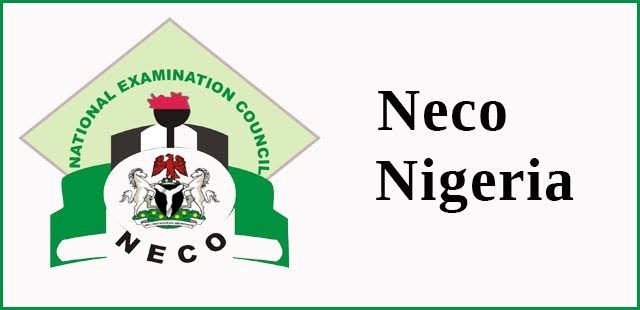
2022 NECO ECONOMICS ANSWERS
***************************************
***************************************
OBJ:
01-10: BDECEEEAAE
11-20: AECCDBAABA
21-30: EAAAEDDAAC
31-40: BAABBCEDBC
41-50: ABCAADCDED
51-60: DBCEAAABEE
Completed.!
***************************************
***************************************
THEORY ANSWERS!!
***************************************
***************************************
(3a)
Wants are the insatiable desire or need by human beings to own goods or services that give satisfaction. Human wants or needs are many and are usually described as insatiable because the means of satisfying them are limited or scarce.
(3b)
Scarcity is the limited supply of resources which are used for the satisfaction of unlimited wants. Scarcity is the inability of human beings to provide themselves with all the things they desire or want. These resources are scarce relative to their demand.
(3c)
Choice refers to a system of selecting or choosing one out of several alternatives. Choices arise as a result of numerous human wants and the scarcity of the resources used in satisfying these wants. Choice, therefore, arises as a result of scarcity of resources.
(3d)
Scale of preference refers to a list of unsatisfied wants arranged in the order of their relative importance. It is a list showing the order in which we want to satisfy our wants arranged in order of priority. On the scale of preference, the most pressing wants come first and the least pressing ones come last.
(3e)
Opportunity cost is an expression of cost in terms of forgone alternatives. It is the satisfaction of one’s want at the expense of another want. It refers to the wants that are left unsatisfied to satisfy another more pressing need.
***************************************
***************************************
(4)
{CHOOSE ANY FIVE}
(i) Allocation of resources:
The study of economics enables the government to allocate scarce resources to various sectors of the economy.
(ii) Development of programmes:
It also enables the government to develop certain programmes that are beneficial to the people.
(iii) Rational decision:
Economics enables individuals to choose certain wants among the numerous needs, using their scarce resources.
(iv) Preparation of budget:
Economics assists the government to determine the expected income and expenditure of a country.
(v) Solutions to economic problems:
Economics also enables individuals, firms and governments to solve their problems using various principles of the subject
(vi) Production:
The study of economics assists us to determine what to produce when to produce, factors of production and how to produce goods and services required to satisfy human wants.
(vii) Provision of basic tools:
The study of economics provides basic tools for analysing economic problems among individuals, firms and governments.
(viii) Maximisation of profits:
Economics enables traders and businessmen to maximise their profits using economic principles in their business.
***************************************
***************************************
(6a)
A monopoly is a term used to refer to a market structure, where one entity, like a company, dominates the market with its products or services. Monopoly comes into existence when there is extreme free-market capitalism. In free-market capitalism, there are usually no restrictions. A single company can enlarge, hence dominating the entire market with a given product or service
(6b)
(i)Patent Right: A patent right is an act securing to a person or a firm the exclusive right of the invention. This helps to protect his invention from being imitated.
(ii) Natural Monopoly: This occurs when particular natural resources can be found in a particular place or country only. This now makes them have control over such resources and commodities produced by them. E.g. communication, electricity, or Nigeria as a sole producer of crude oil in West Africa.
(iii) Deliberate Act of Government: This occurs when the government grants a firm the exclusive or sole right to a trade e.g. public corporation.
(iv) Huge Cost of Production: Some firms require a very huge amount of money to be established, this normally prevents most producers from producing such product and thereby grants few firms that can afford it a monopolist right.
***************************************
***************************************
(7a)
A co-operative society is a voluntary association of persons, businessmen, traders or organization with common needs and interests. The resources of members are pooled together to promote the economic and welfare interest of the members.
(7b)
{CHOOSE ANY THREE}
(i)Producers Co-operative Society
(ii)Wholesale Co-operative Societies
(iii)Retails Co-operative Society
(iv)Consumers’ Co-operatives Society
(i)Producers Co-operative Society: This is an association of producers of similar commodity who have come together for the promotion of the market for their products. They could also purchase tools and raw materials in bulk and share or sell them to members at reduced prices.
(ii)Wholesale Co-operative Societies: Association of wholesalers buying in large quantities from the Manufacturer
(iii)Retails Co-operative Society: This is an association formed by many small independent retailers pooling their resources together and buying in bulk either from the manufacturers or wholesalers.
(iv)Consumers’ Co-operatives Society: This is formed by consumers who pool their resources together to buy essential commodities in bulk direct from manufacturers. Such commodities are then distributed or sold at reasonable prices to members.
***************************************
***************************************
(9a)
Demand is the quantity of a good that consumers are willing and able to purchase at various prices during a given period of time.
(9b)
(i) Price of the Product: There is an inverse (negative) relationship between the price of a product and the amount of that product consumers are willing and able to buy.
(ii) The Consumer’s Income: The effect that income has on the amount of a product that consumers are willing and able to buy depends on the type of good we’re talking about.
(iii) The Price of Related Goods: As with income, the effect that this has on the amount that one is willing and able to buy depends on the type of good we’re talking about.
(iv) The Tastes and Preferences of Consumers: This is a less tangible item that still can have a big impact on demand. There are all kinds of things that can change one’s tastes or preferences that cause people to want to buy more or less of a product.
***************************************
***************************************
(12a)
An Industry can be defined as a group of firm producing similar product and under separate administration of management
(12b)
(i) Tax Concessions to pioneer Industries: The federal government give tax Concession to pioneer Industries for a specified number of years during which the industry will not pay tax
(ii) Protection of infact industries: the government protect infact industries through high import duties and outright ban or placement of quotas or imported commodities which compete with those of home industries
(iii) Development of infrastructure facilities: Government has also embark on construction of better road networks especially the express roads efficient telecommunications, electricity and water supply system
(iv) Establishment of Industrial Estate: The government should also Establish industrial estate and thus reduce the problems of locating industries in urban areas
(v) Establishment of Nigerian Enterprises Promotion Decree: the Nigerian Enterprises of promotion decree of 1972 was set up by the Federal military government in an attempt to transfer part of the profits. Generated in Nigeria to the local people
***************************************
***************************************
Completed..!



Leave a Reply